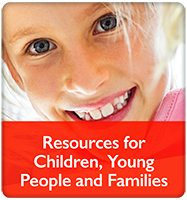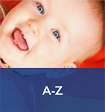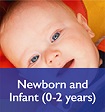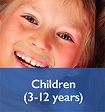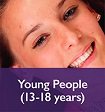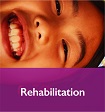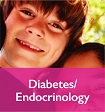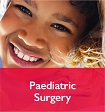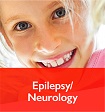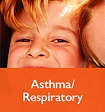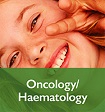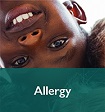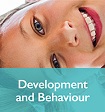Epilepsy and Neurology
The Paediatric Neurology Service is a team of health professionals who work together to improve the health of infants, children and adolescents with conditions that affect the brain, nerves and muscles.
These conditions include:
- epilepsy
- demyelination
- neuromuscular diseases
- paediatric stroke
- suspected degenerative neurological disorders
Who we care for
Many neurological conditions can be managed by your paediatrician or general practitioner. Your paediatrician will refer to the neurology service if they feel specialist advice is needed for the diagnosis or care of your condition.
Our team is based at the Royal Hobart Hospital but we provide care for children and young people across the state. The service offers general neurology and dedicated epilepsy clinics. We also provide holistic neuromuscular clinics, in collaboration with the Tasmanian Paediatric Rehabilitation Service and allied health at the Royal Hobart Hospital.
In partnership with the Neurophysiology Department, we provide electroencephalogram (EEG) monitoring and paediatric nerve conduction studies (NCS). Routine EEGs can be requested by GPs and Paediatricians. Other neurophysiology testing in children is usually performed after assessment by a neurologist.
What to expect at clinic
Appointments may occur either face to face in Hobart or via telehealth (video link) depending on your needs and the location of your home.
When you arrive at clinic you will usually have your height and weight measured, this helps to check your growth and decide medication doses. You may also have your blood pressure checked.
During your appointment the paediatric neurologist will take a medical history and look at any scans or investigations you have had. If required, the neurologist will perform a neurological assessment which is a short series of activities that help us to understand how your brain, nerves and muscles are working together. The neurologist will talk to you if you need any further tests or investigations and will report back to your paediatrician with recommendations for your care.
The epilepsy/neurology nurse is available to assist with management plans, education, care coordination or support around your diagnosis or neurology health needs.
What information can you provide for your appointment?
For children and young people with epilepsy or suspected seizures, sometimes video footage of events can help us to understand your condition. If you have videos you are comfortable sharing with us please call prior to your appointment using the contact details below. Keeping a diary or record of your seizures/events and bringing this to your appointment is also very helpful.
The neurology team usually begins with
| Child (you) and family or caregiver | You and your parents/caregivers are important members of our health care team, you look after yourself and your condition every day. You can tell us about your health and how your condition affects your everyday life. We will include you in decisions about your health. |
| Paediatrician | Your paediatrician is a key member of your health care team, they provide specialist medical care and look at your health holistically. Your paediatrician often takes the lead in providing a diagnosis or organizes referrals for tests or assessment with other health professionals. |
| Neurology/epilepsy nurse | The neurology nurse is your main contact point. Depending on your needs, the nurse may provide assessment, education and support, giving you the information you need to care for your condition. They will help you to organize your care and assist with communication between team members. You can talk to them if you have questions or concerns. |
| Paediatric neurologist | The paediatric neurologist is an expert in conditions affecting the brain, nerves and muscles. They will review your health at each clinic appointment, make sure you receive the care and tests you need and will be involved in making decisions about your care. The neurologist will also be an ongoing support to your paediatrician. |
| Dietitian | The dietitian will assist in the assessment and management of your nutritional needs related to your condition. They will talk to you about your diet and make recommendations to support your health and growth. The neurology dietitian also provides support for children on a ketogenic diet for the treatment of epilepsy. |
| Pharmacist | The pharmacist will help you understand your medication and keep your medication plan as simple, safe and helpful as possible. The pharmacist can also give support to doctors as required. |
| General practitioner (GP) | Your General Practitioner can assist you with general health concerns and help with necessary medication prescriptions in between clinic visits if required. |
Depending on individual needs the following health professionals may also provide care
| Physiotherapist | Physiotherapists are experts in musculoskeletal assessment and treatment. They can help with motor skills (such as walking), joint problems, pain and fatigue. |
| Occupational therapist (OT) | Occupational therapists help people to participate in activities they find meaningful and daily activities that they need to do. These activities include self-care (such as mealtimes or getting dressed), play, learning, school, work, leisure, hobbies and spending time with friends and family. Occupational therapists assess and assist with movement, thinking, sensory processing and equipment. |
| EEG scientist | An electroencephalogram (EEG) studies electrical activity in the brain and is performed by an EEG scientist. If you need an EEG your paediatrician or neurologist will discuss this with you. |
| Respiratory scientist | Respiratory scientists perform lung function tests to help assess the health of your lungs, airways and respiratory muscles. If you need a lung function test your paediatrician or specialist doctor will discuss this with you. |
| Neuropsychologist | A neuropsychologist provides assessment to understand how conditions affecting your brain may impact learning, memory, behaviour and decision-making. |
| Rehabilitation team | The rehabilitation team help children and young people to learn or regain skills and independence related to everyday activities. They work with you to set goals that aim to enhance the quality of life. |
How to access the neurology service
A paediatrician referral is required. Referrals should be directed to Royal Hobart Hospital and can be submitted by following the directions on the Department of Health, Tasmania's outpatient clinics website.
Other supports >>
| School | Schools can provide extra support to children and can engage organisations such as Epilepsy Tasmania to provide training for school staff in seizure management. |
| Child Health and Parenting Service (CHaPS) |
CHaPS work in partnership with families of children 0-5 years of age and aim to enhance the health and wellbeing of all young children in Tasmania. They provide child health and parenting information, support, assessment and advice. Services provided include completion of age-related growth and developmental assessments from 2 weeks to 4 years of age and assistance with breastfeeding/feeding issues, nutrition, sleep and settling, post-natal depression and wellbeing, child-parent communication and behaviour management. Services are provided from many community locations. You can contact CHaPS directly on 1300 064 544 24/7 parenting information and support is available through an associated service, The Parent Line on 1300 808 178 |
| National Disability Insurance Scheme (NDIS) | Depending on your child’s needs, they may be eligible for NDIS funding for disability support and equipment. |
(strong families safe kids) | Some families may require increased support through a community organisation due to the complexity of their situation or other vulnerabilities. |
Contact us >>
| Statewide |
|---|
Royal Hobart Hospital Phone: (03) 6166 0000 |
Disclaimer: this website contains general health information and does not replace the advice of a health professional.


